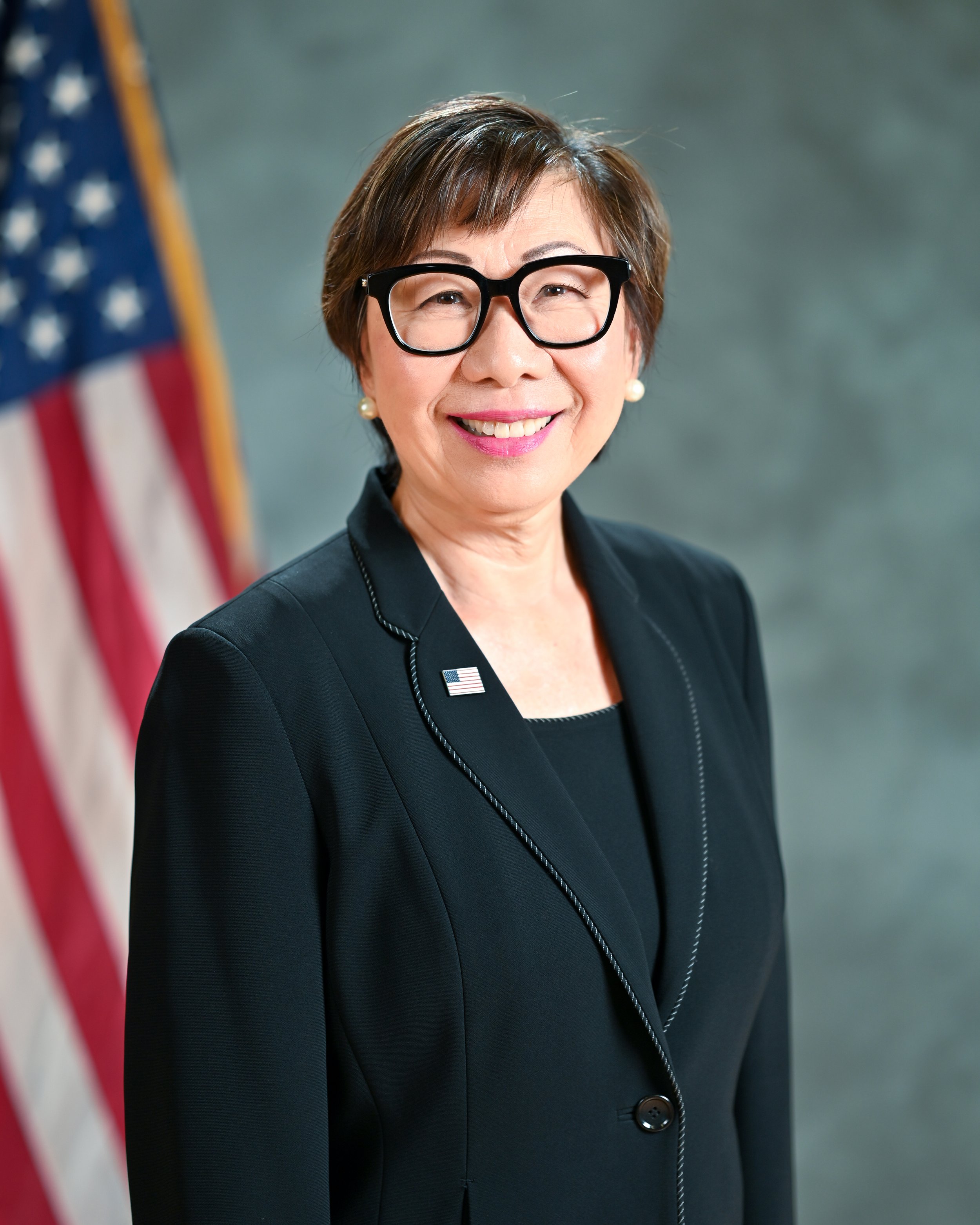Mullin, D-South San Francisco, will defend his District 15 seat against challenger
Featured Article By Holly Rusch, Daily Journal staff | Aug 1, 2024 | LINK
Mullin, D-South San Francisco, will defend his District 15 seat against challenger
Anna Kramer, the chair of the San Mateo County Republican Party, is running against him
Anna Kramer, candidate for Congress CD-15
U.S. Rep. Kevin Mullin, D-South San Francisco, is defending his District 15 seat — which encompasses much of San Mateo County — against Republican challenger Anna Kramer in the upcoming November election.
The candidates have vastly different opinions on how to deal with the cost of living crisis that hits particularly close to home in San Mateo County, which has one of the highest low-income thresholds in the nation.
Mullin has championed raising the federal poverty line in a bill introduced last year that would expand the number of individuals and families eligible for social services programs, arguing that the current federal poverty line of $32,000 for a family of four is deeply antiquated.
“That is the central question, frankly, that all of us in public life are grappling with, because we live in the epicenter of the affordability crisis,” he said. “There undoubtedly would be additional costs to the federal government for that, but there are people that should be eligible for some federal assistance that are not currently, to help close the gap in family budgets in this country.”
He also suggested that the federal government should use more tax credits to bolster affordable housing projects, and maintained that raising the poverty line should be a nonpartisan issue that could help residents of both Democratic and Republican states struggling to make ends meet.
“The federal money required to fund more extensive social service programs would be better spent on education and job resources to motivate individuals to support themselves.”
The federal money required to fund more extensive social service programs would be better spent on education and job resources to motivate individuals to support themselves, Kramer said.
“Instead of giving them fish, we need to teach them how to fish,” she said. “The key is, we need to provide education, we provide job resources, so they can earn a living, be proud of the fact that they’re earning a living and not living on handouts.”
Another progressive policy she eschewed was a $20 minimum wage for employees, which would create an artificial floor in the market not met by current demands and further hamper California businesses already stymied by current regulations, Kramer said.
“I believe deregulation is going to help the middle class. The small business owner is what makes up the large majority of the middle class. They are hurting,” she said.
“I believe deregulation is going to help the middle class. The small business owner is what makes up the large majority of the middle class. They are hurting.”
Both candidates lauded the 15th District as a longtime hub for innovation and technology, but have differing opinions on how to address the burgeoning regulatory, privacy and misinformation concerns that rapidly developing tech like artificial intelligence can present to constituents.
The Peninsula is once again poised to experience a technology “boom,” this time in the AI space, Mullin posited, and said that the dark side of recent technological advancement, like “deepfakes” — extremely realistic-looking, but fake, images and videos — could go so far as to threaten democracy.
“We’re already seeing, in our presidential election, the presence of deepfakes being employed. So there has to be a really good look at how AI technology is being deployed in democracies, in our own democracy, and across the globe,” he said.
Rather than creating a “great, big new bureaucracy” to regulate AI, federal leaders should first educate themselves and then empower and fund existing regulatory agencies, like the Department of Commerce, the Federal Trade Commission and Federal Elections Commission, to properly protect the public, Mullin said.
Kramer acknowledged increasing privacy concerns that technological innovation brings, but said that she was generally not in favor of government intervention and believed it was the role of private companies to protect consumers from harm.
“In general, I am against government intervention, because I don’t think that government knows how businesses operate,” she said. “I think that’s up to the different companies that safeguard our privacy and our information without having censorship, which is a real big concern for me, because my parents escaped communism.”
Maintaining access to “open-platform” internet would be a priority for her if elected, she said, citing her own personal experience with censorship after a YouTube video she posted expressing doubt about the 2020 election results was taken down.
She cited another personal experience — her immigration from Taiwan and eight-year process to citizenship — as backing for stronger enforcement against illegal immigration and increased merit- and financial-based criteria for legal immigration.
“I went through the legal process, and for those people that are waiting in line, this illegal process is like cutting in line. It’s really unfair and unjust, and it should not happen.”
“I went through the legal process, and for those people that are waiting in line, this illegal process is like cutting in line. It’s really unfair and unjust, and it should not happen,” she said.
When asked if she would support Republican presidential candidate Donald Trump’s promises for “mass deportation” efforts, she said she wouldn’t support legal pathways to immigration for anyone who has illegally entered the country in the past three years.
Mullin emphasized a bipartisan approach to immigration reform “where the borders are secured, but family reunification is a priority,” he said, suggesting greater resources for asylum judges to mitigate an overwhelmed system and maintaining protections for Deferred Action for Childhood Arrival recipients.
“The system, as it’s currently configured, is overwhelmed and it’s broken, but the suggestion that we would have mass deportations under a second Trump administration is unthinkable and it’s inhumane and, it is, frankly, the worst of politics coming out, when you hear that kind of extreme rhetoric,” he said.
Congressional immigration reform has been stalled in the House because Republicans are intentionally using the border crisis as a political issue against Democrats, he said.
As death tolls in the Israel-Hamas war continue to rise and unrest in the Middle East escalates, handling of the sensitive foreign policy issue is of serious importance to constituents. Both candidates maintained Israel has a right to defend itself, with Mullin calling for a cease-fire and expressing far more criticism of Israeli Prime Minister Benjamin Netanyahu than his opponent.
“I have been very critical of how Benjamin Netanyahu has executed the war. The loss of innocent civilian life has been truly tragic to witness,” he said. “That being said, Israel absolutely is our ally. It has a right to defend itself.”
Mullin is calling for a cease-fire, the release of all remaining hostages and an end to the war. Netanyahu’s lack of support for a two-state solution as a path to peace and stability is deeply concerning, he said, adding that he is supportive of an international plan to rebuild Gaza once military conflict ends.
Kramer said the federal government should continue with a framework for peace in the Middle East consistent with the Abraham Accords, but put the impetus on Hamas to release Israeli hostages before further steps are taken.
“I take the hard line — you release the hostages and then we start talking. But we cannot let this kind of terrorism occur”
“I take the hard line — you release the hostages and then we start talking. But we cannot let this kind of terrorism occur,” she said.
On local issues, Mullin said it’s his priority to be a “district-based Congress member” who puts the needs of constituents as a first priority. That’s reflected in nearly $14 million in community project funding he’s fought for, from sewer systems to stormwater infrastructure.
“I want to stay in touch with the needs of my district and solicit project ideas where federal money can come into play,” he said. “We’ve gotten a range of projects that are safety and infrastructure related.”
If elected, Kramer said that consolidation of the Bay Area’s regional transit systems and addressing homelessness would be her local priorities.


